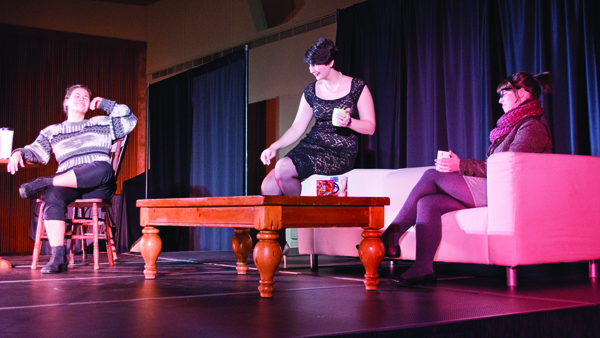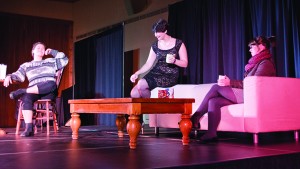
By Tahnayee Clendinen, A&E Writer
The Vagina Monologues began when Eve Ensler decided to interview countless women about their most intimate body part — their vagina.
In the show and book, Ensler asked questions such as “What would your vagina say if it could talk?” or “If you could dress your vagina what would it wear?”

The responses to most of the questions range from simple to thought-provoking speeches designed to encourage a whole new way of thinking.
One of the monologues performed simply begins with “My vagina is angry.” Another is entitled “Hair,” leaving the content both obvious and vague to the viewers, until the speaker begins to address the audience.
Every time participants perform the show, it is a new experience for the audience. Sometimes it is performed by a single actress doing multiple readings and playing out numerous scenes.
On the other hand, it can be a full theatrical event, with a handful of actors who attempt to make the words of those Ensler interviewed come to life.
In an interview she did for a Random House feature, Ensler said, “One of the reasons I do this is that every night women leave that theater changed. I’ve had so many women come up to me after the show and say, ‘I am so happy to have a vagina. I did not feel this way when I came into the theater.’”
The subject matter itself, as described by Ensler in an interview for The New York Times, serves to do more than be acted out on stage. It gives a voice to those who need it most.
“I think often women are not listened to, and the monologue forces you to listen,” Ensler said.
The play is more often than not a part of the larger movement called V-Day. V-Day, according to its website, is “a global activist movement to end violence against women and girls.” The ‘V’ in V-Day stands for “vagina,” “victory over violence” and most commonly “Valentine’s Day,” as V-Day is Feb. 14.
Men are highly encouraged to come and watch the play alongside their female cohorts. While the play is centered around the female anatomy, and therefore seems as though it may only relate to women, it is also an awareness movement.
Men who want to become aware of the various social aspects and issues revolving around vaginas are again encouraged to be present.
The Pacific Lutheran Univeristy Women’s Center is sponsoring this year’s Vagina Monologues, which is being performed in the Anderson University Center under the direction of Lillian Ferraz and Igrid Clark.

















